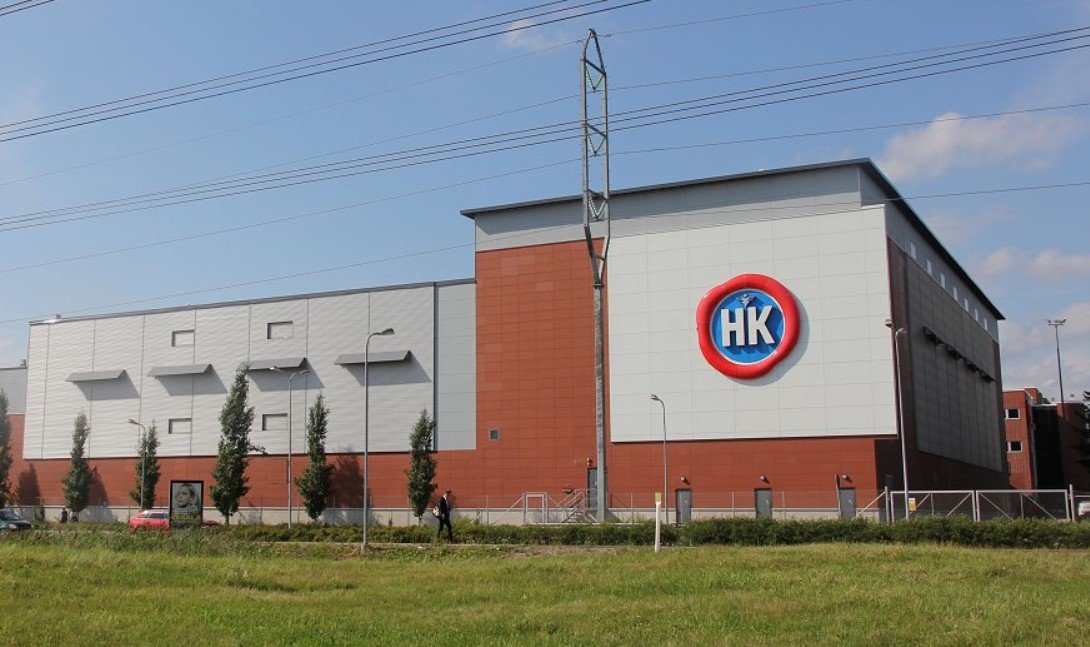HKScan, a Finnish food company that produces and sells meat and poultry products, is in talks to sell its Danish business to an undisclosed buyer. The company said that the potential divestment is part of its strategy to streamline its group structure and strengthen its balance sheet. HKScan also said that it wants to concentrate on its core markets of Finland and Denmark, where it sees more growth opportunities.
HKScan’s Danish Business: What Does It Do?
HKScan’s Danish business consists of three production units and a head office in Aarhus, employing about 677 people. The business operates under the brand name Rose, which is mainly known for its poultry products. The Danish business also produces and sells pork and beef products, as well as convenience foods and ready meals.
In 2023, the Danish business generated net sales of €230.2 million, up from €220.4 million in 2022. The comparable EBIT was €3.3 million, or 1.4% of net sales, which was the best result for the Danish business in more than a decade. The Danish business accounted for about 20% of HKScan’s total net sales and 22% of its total comparable EBIT in 2023.

HKScan’s Strategy: Why Does It Want to Sell Its Danish Business?
HKScan said that the possible sale of its Danish business is related to its ongoing assessment of its group structure and its goal to improve its financial performance. The company said that it is reviewing the positioning of its market areas as part of its long-term strategy, which aims to transform HKScan into a versatile food company.
HKScan also said that it wants to focus on its core markets of Finland and Denmark, where it has a strong presence and a leading position in the meat and poultry sectors. The company said that it sees more potential for growth and profitability in these markets, as well as opportunities to develop and launch new products and services.
HKScan’s CEO Juha Ruohola said: “The divestment of the Danish business would enable us to better focus on our remaining businesses and implement our long-term strategy. We believe that the Danish business would have better prospects under a new owner, who could invest more in its development and growth.”
HKScan’s Previous Divestments: What Has It Sold Before?
The potential sale of its Danish business is not the first divestment that HKScan has made in recent years. In fact, the company has been gradually reducing its presence and operations in other markets, such as Sweden, the Baltic countries, and Poland.
In January 2024, HKScan announced that it had agreed to sell its Swedish business to Lantmännen, a Swedish agri-food group, for about €60 million. The Swedish business included four production units and a head office in Stockholm, employing about 1,100 people. The Swedish business operated under the brands Scan, Pärsons, and Ridderheims, and produced and sold meat and poultry products, as well as convenience foods and ready meals.
In August 2023, HKScan completed the sale of its Baltic business to AS Maag Grupp, an Estonian food company, for an undisclosed sum. The Baltic business included two production units and a head office in Rakvere, Estonia, employing about 800 people. The Baltic business operated under the brands Rakvere, Tallegg, and Rigas Miesnieks, and produced and sold meat and poultry products, as well as convenience foods and ready meals.
In 2022, HKScan sold its Polish business to Sokolow Group, a Polish meat company, for €20 million. The Polish business included one production unit and a head office in Swinoujscie, Poland, employing about 550 people. The Polish business operated under the brand HKScan, and produced and sold meat and poultry products, as well as convenience foods and ready meals.
HKScan’s Future Prospects: What Will It Do Next?
HKScan said that it is in preliminary negotiations regarding the divestment of its Danish business, and that there is no certainty about the outcome or the terms of the deal. The company said that it will disclose more information when appropriate, and that it will not comment further on the matter at this stage.
However, the company also said that it will continue to pursue its long-term strategy, which is to grow into a versatile food company. The company said that it will focus on developing and launching new products and services, such as plant-based and organic products, ready-to-eat and ready-to-cook meals, and online and home delivery services.
The company also said that it will continue to improve its operational efficiency and sustainability, as well as its customer and consumer satisfaction. The company said that it will invest in its production facilities, supply chain, and digitalization, as well as in its quality, safety, and environmental standards.
HKScan’s CEO Juha Ruohola said: “We are confident that we have a solid foundation and a clear direction for the future of HKScan. We are committed to creating value for our shareholders, customers, consumers, and employees, as well as for the society and the environment.”
